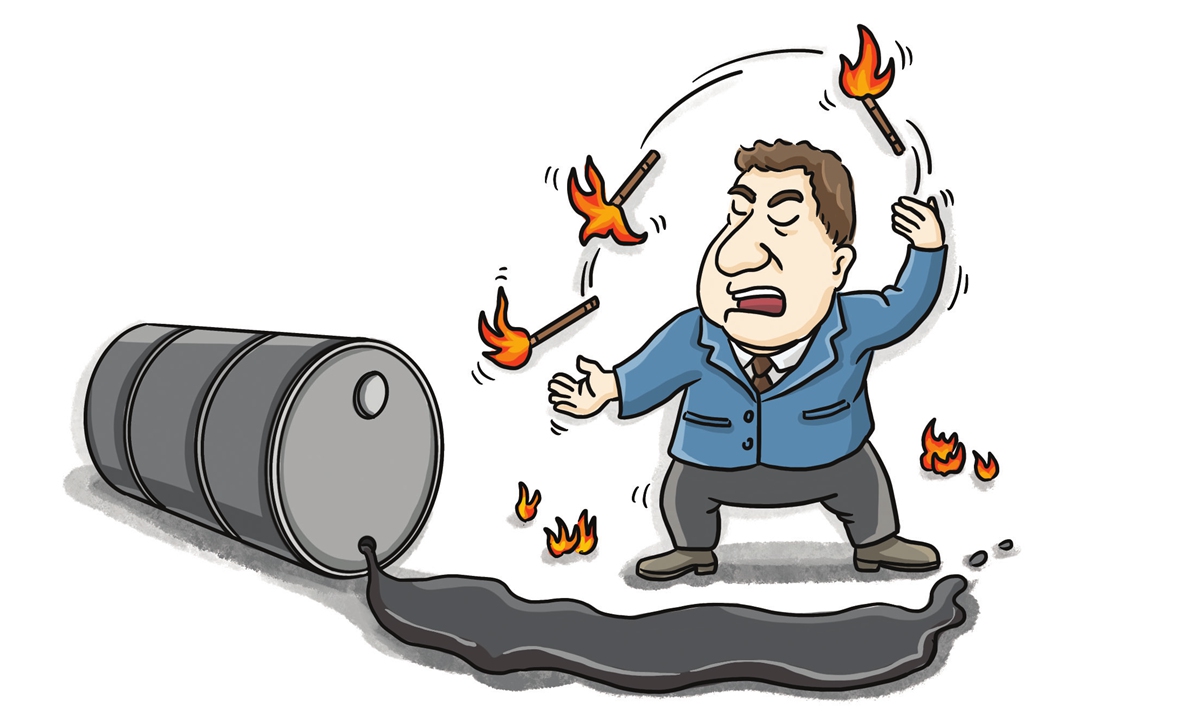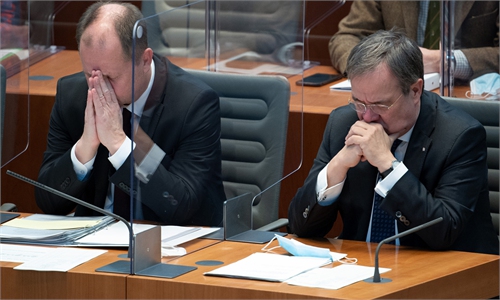COMMENTS / EXPERT ASSESSMENT
Tariffs dispute is a wrong choice for Germany no matter who wins election

Illustration: Xia Qing/Global Times
The countdown to Germany's general election has begun. The Green Party's chancellor candidate's tougher talks when it comes to economic policies over China, among many topics, have been drawn attention, such as her latest notion of tighten trade policy toward China and impose higher tariffs.
The candidate Annalena Baerbock told an interview with a local newspaper that they could impose a corresponding surcharge on Chinese companies that "have been subsidized on the Chinese market", according to the Bloomberg.
It is not the first time for Baerbock giving her tough remarks over relation with China. She also once called for exclusion of Huawei from the country's 5G network construction, which was reiterated during the interview as well.
These notions during a heated election campaigns do not require thorough consideration over potential fallout afterward. Although the sharper attitude has attracted more attention for Baerbock, she also admitted that "China was too big to simply cut off ties".
During the Merkel era since 2005, Germany has adopted a generally practical approach to two-way relations, upholding the broader picture of economic cooperation relation with China. It has clearly benefitted the German economy. In 2020, China became Germany's largest trading partner for the fifth consecutive year, following with Netherlands and the US.
As one of the first countries to recover from the COVID-19 outbreak, China has been offering a market for companies from both home and abroad to survive and grow during the pandemic, including German enterprises.
Per a report by the consulting firm Ernst & Young in May, leading German car makers Volkswagen, BMW and Daimler lead a "strong kick-off" to the year and were able to benefit particularly from the growth of the Chinese market. The three auto giants recorded a sales rise in China by 66 percent year-on-year in the first quarter, comparing to their 21 percent growth in American market and a 1 percent drop in the Western European market during the same period.
The significance of the Chinese market for German firms and industries is plain for all to see during both the pandemic and post-pandemic eras. In the perspective of Germany, the nation has been an export-oriented economy, though there may emerge more narratives leaning to "challenges from China" or "institutional competition with China" among German political community during post-Merkel era, but in essential terms, Germany and China still have huge untapped potential in various sectors and the prospect of bilateral economic relation remains promising.
Not only that the colossal and stable Chinese market has been boosting German multinationals' recovery during the once-in-a-century health crisis, continued opening-up of the Chinese market has also offered a crucial chance for the enterprises to gain a strong position in a post-COVD world. For instance, auto makers across the world have been eyeing the potential Chinese market for the development of new energy vehicles, with almost all industrial giants enhancing layout in the market despite the COVID fallout.
Taking a wider perspective, the EU has been hard hit by the pandemic, with countries possessing different degrees of robustness to withstand the crisis. It is hard for the bloc to swiftly resume the vitality of the market; hence, a stable and large outside market appear to be particularly important to the European bloc. Though the China-Europe Comprehensive Investment Agreement (CAI) has encountered setbacks during processing, some top EU officials, taking a rational mindset, have repeatedly called for stripping the mutual-beneficial deal from political disputes.
To sum it up, China and Europe are both important forces for the building of an open world economy. Rather than implicating normal and mutual-beneficial economic cooperation into an ideological arm-wrestle, the European leaders should step up efforts to jointly further promote trade and investment liberalization and facilitation, reduce trade barriers, and definitely avoid erecting new ones.
The article was compiled based on an interview with Zheng Chunrong, director of the German Studies Center at Tongji University. bizopinion@globaltimes.com.cn



